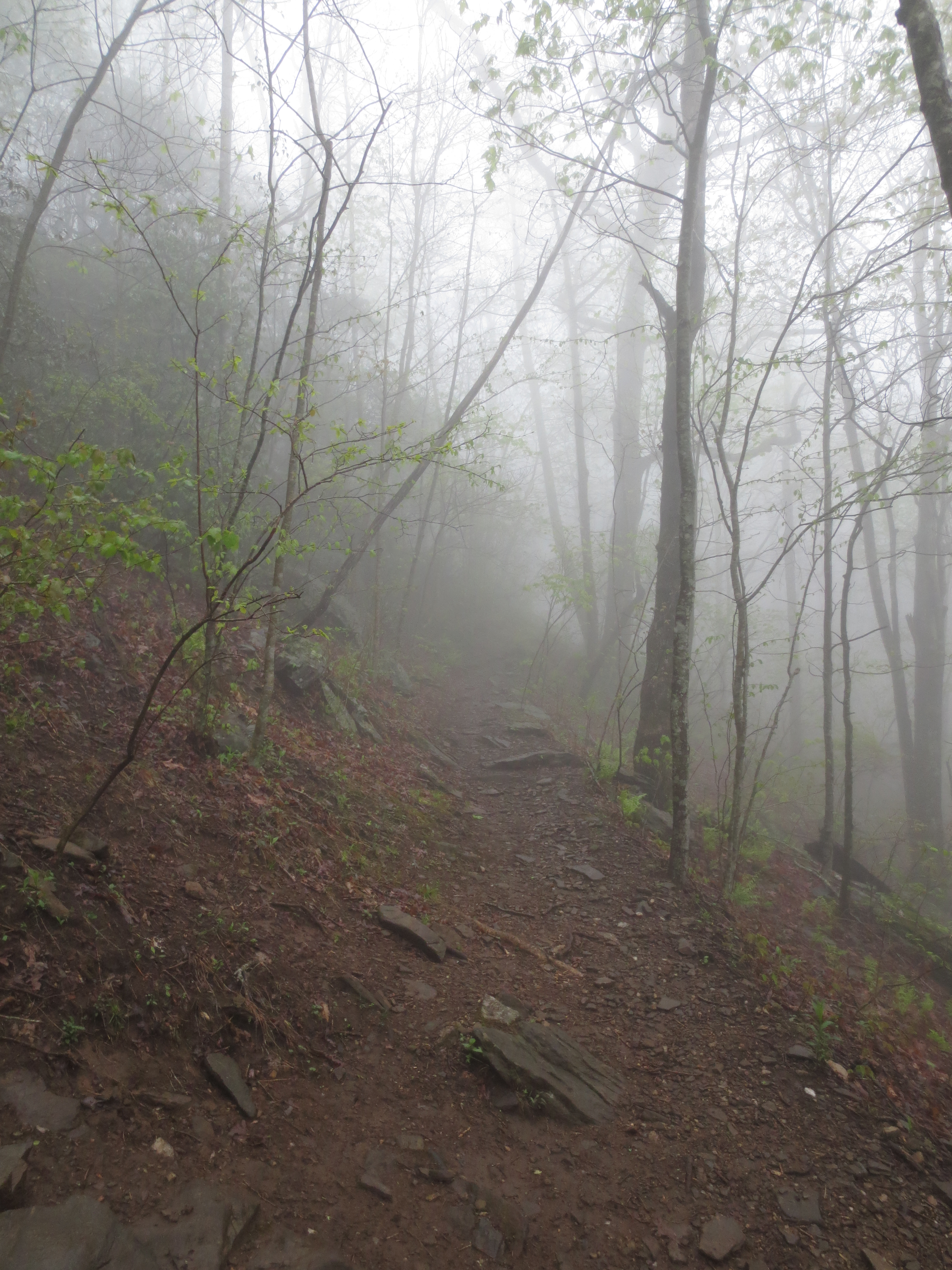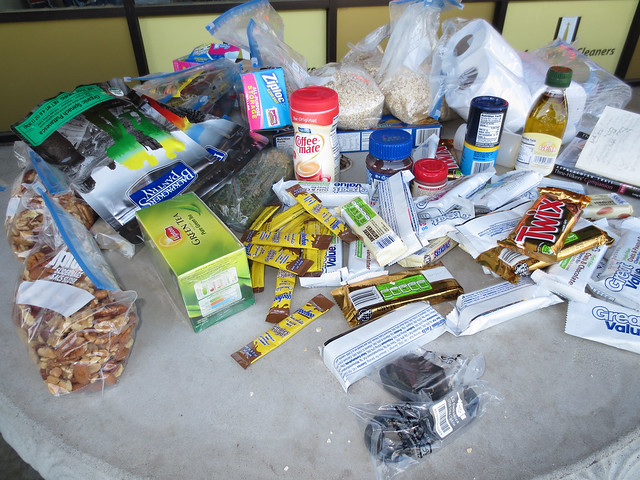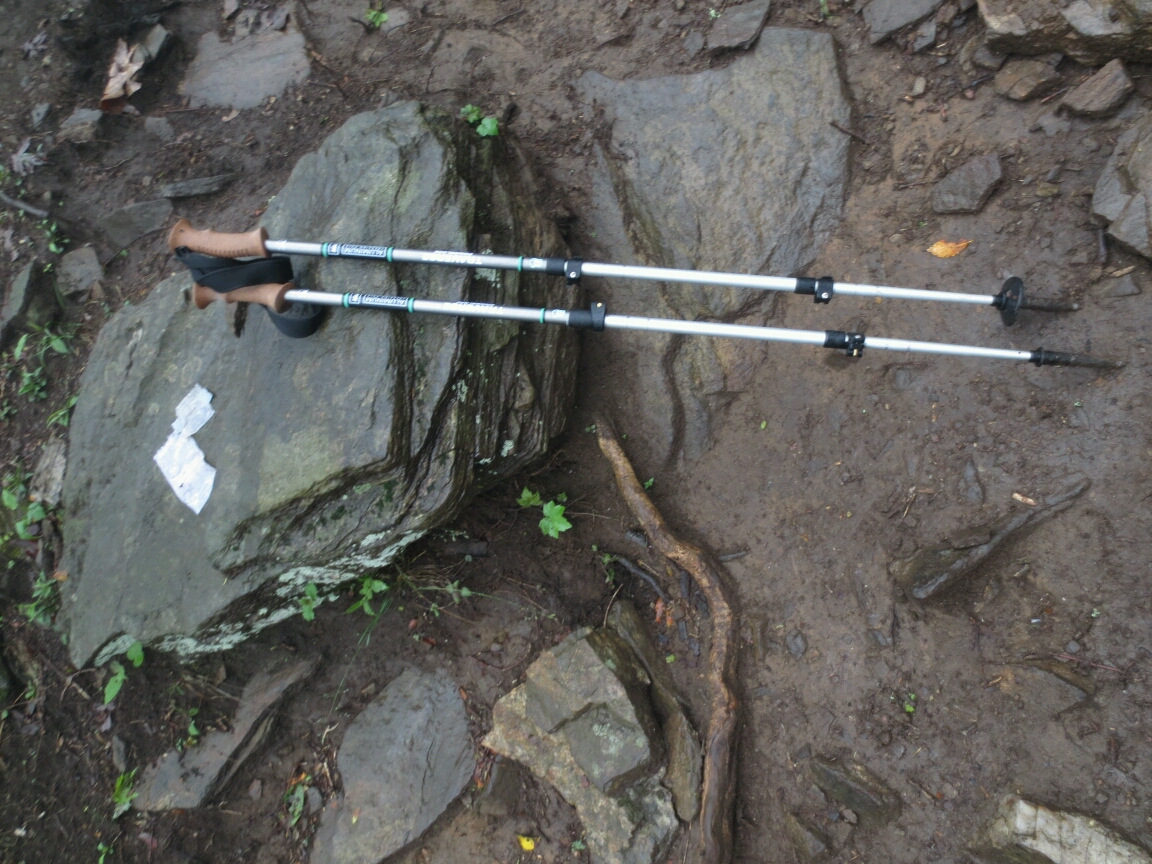
Hiking the A.T. – Part 2: Rain
“Thanks for taking that poncho to Keith”, Gary says to me, as he drops my and me brother off at Dicks Creek. “God bless you”. Then he gets to his van and drives to his Hostel, as we walk back onto the trail and into the rain. The rain that’s been pouring for 16 hours now.
We’ve been keeping out of the rain for most of the time so far, thanks to Gary and his hostel. The Bluberry Patch Hostel is one of those magical places on the trail. Gary has been a thru-hiker in 1991, and he is running the hostel for a while now, as a ministry. Which means: Instead of paying, you give a donation, if you can. And it means: on the table is a bible, and at breakfast, Gary says prayer.
When we heard that a big storm front was approaching the Appalachians from west around evening, we had packed our stuff fast last morning, and almost ran up and down the hills. We were planning to leave the trail anyway, to hitchhike into the next town for resupply our food and stove fuel, so we tried to be early and got there around 2 pm.
The Bluberry Patch Hostel is located between Dicks Creek and Hiawassee and offers 8 bunks for hikers. And it has a nice little porch, where we sat and watched the rain start, as we cleaned our boots and sorted our backpacks. To save on pack weight, we hitch to a town to resupply every 2 to 5 days on the trail, and also use that break for shower, laundry, and a nice hot meal.
For resupply we didn’t have go to the supermarket this time, though. We had prepared a pack of food back in Atlanta, and had sent it from there to the Bluberry Patch Hostel. Such a mail drop, as it is called on the AT, can save some time and will help you through spots, where there is a Hostel, but there are no or only expensive shops.
Oats, dried fruits, nuts, sugar, cereal bars, coffee and tea, candy bars, noodles, broth, mashed potatoes, that is our basic food. We always try to get some fresh fruit and vegetables, too, when we hit the little towns. We don’t have any of those in our mail drop, but we find something else that is crucial as well: another roll of toilet paper. We didn’t want to send the denaturalized alcohol (Spiritus in German) for our stove via mail, but fortunately Gary offers some at his hostel.
Gary’s place gets crowded now, and at 4 pm, we all hop in his car to drive down to Hiawassee. Although we are good on resupply, we still are keen on the visit to that little town, because there is a hot meal waiting for us. And even better, it’s an all-you-can-eat-buffet, which means hiker paradise. Two hours later we are stuffed and happy as hikers can be. When we come back to the hostel, we find a great surprise waiting for us: Johnny Rocket and Flash Gordon, two real fast (and real nice) hikers have arrived. As the rain keeps pouring, we keep sharing our stories of the last days and talk late into the night. It already feels like a hikers community.
The next morning brings more rain, but also great breakfast: Pancakes, sausages, scrambled eggs and hash browns. Gary has it all prepared and calls us into his guest room, welcomes us along with his wife, and says prayer. He makes sure to give thanks for the weather. Although the rain is annoying to us hikers, it was needed for the land. And it’s not even that bad. When Gary was hiking the AT in 1991, 30 out of the 40 first days were rain days, he tells us. So we’ve been actually doing great so far, having only 1 rainy day in 6 days total. And rain isn’t even the worst you can get. “More people drop out in Virginia, when it gets really hot”, says Gary. Also, you can get snow, hail or thunderstorm. It can get really nasty. And it can get really cold.
But rain can be dangerous, too, if you are not prepared for it. You need rain gear, and on a day like this, even the best rain coat will leave you wet, as Ralph and me will experience. So you also need clothes, that don’t soak, and that dry pretty fast. Keith, who stays with us at Gary’s place, doesn’t have any of those, doesn’t need them, he says, because he wants to travel light.
Gary noticed that, when Keith left early this morning, and when he drives us to the trail a little later, he can’t stop talking about it. “I am worried about Keith” he keeps saying over and over again. So as we say good bye, I take the poncho Gary found in his home and take off to the woods. It’s one more thing to carry on, but I make sure, that after 8 hours of walking in the rain, as we arrive at the shelter were Keith is staying that night, Keith takes the poncho.

